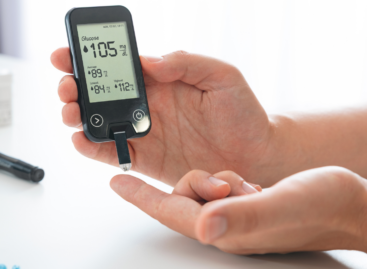The anteroom of diabetes: obesity triples the risk of developing diabetes
While deaths related to diabetes and its complications are constantly increasing worldwide, type 2 diabetes and its precursors already affect approximately 1.5 million people in Hungary. Lifestyle factors and everyday stress, as well as the extra kilos that appear as a result, play a role in the development of the civilizational folk disease.
 An astonishing proportion of patients diagnosed with diabetes, around 80-90%, are overweight or obese at the same time, and the problem has now reached such proportions that professional organizations recognize obesity as a chronic disease in itself, according to the Association of Hungarian Medical Societies and Associations (MOTESZ). at the round table discussion organized on World Diabetes Day. According to experts, prevention has never been more important and that the closely related metabolic changes are treated with complex and modern therapies.
An astonishing proportion of patients diagnosed with diabetes, around 80-90%, are overweight or obese at the same time, and the problem has now reached such proportions that professional organizations recognize obesity as a chronic disease in itself, according to the Association of Hungarian Medical Societies and Associations (MOTESZ). at the round table discussion organized on World Diabetes Day. According to experts, prevention has never been more important and that the closely related metabolic changes are treated with complex and modern therapies.
November 14 is World Diabetes Day, which is accompanied by awareness and educational campaigns and events all over the world – no coincidence, since nearly 500 million people now live with this metabolic disorder. In Hungary, according to the available data, 15% of the population struggles with type 2 diabetes or its precursors (including insulin resistance). Unfortunately, our country is very much affected by the problem, and the Association of Hungarian Medical Societies and Associations organized a public forum and round table discussion under the title ‘What can we do to prevent diabetes and its complications?’ to discuss the most important issues related to the topic with the help of experienced specialists, partner organizations and decision-makers. Among other things, the participants could hear about how the risk of stroke, bone fracture and diabetes can be reduced or how high blood pressure and type 2 diabetes are related at a young age.At the event, Deputy State Secretary Balázs Molnár (Ministry of European Union Affairs) provided information on the Hungarian EU presidency, its health aspects, and the European Cardiovascular Action Plan.
Related news
November 14th is World Diabetes Day
🎧 Hallgasd a cikket: Lejátszás Szünet Folytatás Leállítás Nyelv: Auto…
Read more >Mattel announces diabetic Barbie doll
🎧 Hallgasd a cikket: Lejátszás Szünet Folytatás Leállítás Nyelv: Auto…
Read more >Related news
ZEW: Economic expectations worsened in Germany and the euro area in February
🎧 Hallgasd a cikket: Lejátszás Szünet Folytatás Leállítás Nyelv: Auto…
Read more >







